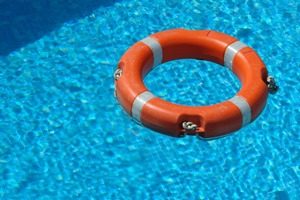 (Indianapolis, IN) – Summer is here and so the Indiana Department of Health (IDOH) is reminding Hoosiers to enjoy the sun and fun while staying safe and healthy.
(Indianapolis, IN) – Summer is here and so the Indiana Department of Health (IDOH) is reminding Hoosiers to enjoy the sun and fun while staying safe and healthy.
“As we embrace summer activities with family and friends, it’s crucial to prioritize preventing illness and injury, specifically around water safety,” said State Health Commissioner Lindsay Weaver, M.D., FACEP. “I encourage Hoosiers to follow these simple steps to stay safe.”
Water Safety
For many Hoosier families, warm weather means spending time together at pools, lakes, and other bodies of water. Unfortunately, deaths due to drownings have increased in the United States since 2019, with more than 4,500 people drowning each year. In Indiana, drowning is the leading cause of death for children ages 1-4 years. In 2018-2023, 127 Indiana residents younger than 18 years died due to drowning.
When Hoosier families are in or around water this summer:
- Designate a responsible adult to supervise children closely and constantly. You can assign a specific adult to supervise each child when they have access to water
- Wear a life jacket while boating and be aware of local conditions
- Avoid distracting activities like reading, using the phone, and consuming alcohol or drugs while watching kids in or near water because drowning happens quickly and quietly
IDOH has joined the National Drowning Registry in partnership with the National Center for Fatality Review and Prevention. Through this registry, local Child Fatality Review teams will help conduct comprehensive surveillance of all pediatric drownings and standardize the investigation process to better understand the burden of drowning deaths among youth and prevent future fatalities from occurring.
In addition to comprehensive surveillance of deaths, IDOH works with partners to provide support and oversight to local water safety projects. This summer, several local health departments are partnering with community stakeholders to implement water safety initiatives through Health First Indiana. More information about water safety is available on the IDOH website.
Sun Safety
When spending time outdoors, prevent sunburn, heat exhaustion and heat stroke.
- Keep water on hand to stay hydrated
- Wear sunscreen with at least 30 SPF, reapplying it at least every two hours if swimming
- Take advantage of shade and wearing protective clothing when possible
Signs of heat exhaustion include fatigue, weakness, headaches, nausea, sweating, dizziness and a decrease in urine production.
Heat stroke is a more serious and a potentially life-threatening condition with symptoms that include confusion, inability to sweat, loss of consciousness, seizures, and an internal body temperature that can reach 104° F or higher. It is critical to cool the body of any person suffering from heat exhaustion or heat stroke as quickly as possible, and if a person shows signs of heat stroke, emergency medical services should be contacted. If sunburn occurs, treat it with topical moisturizers, cool compresses and pain relievers. Contact your healthcare provider if extensive blisters or signs of infection are present.
Mosquito-borne illness
With summer comes mosquitoes, and their bites can sometimes transmit illnesses like West Nile virus (WNV). While 80 percent of those infected will not develop any symptoms, about 20 percent of people infected with WNV will develop an illness accompanied by fever, headache, body aches, joint pains, vomiting, diarrhea or rash. People older than 60 years and those receiving immunosuppressive medications or treatments are at greatest risk of severe WNV disease.
Ways to prevent mosquito bites that potentially carry WNV include:
- Avoid being outdoors when mosquitoes are active (especially during evening hours, from dusk to dawn, and in the early morning)
- Apply an EPA-registered insect repellent containing DEET, picaridin, IR3535, oil of lemon eucalyptus, or para-methane-diol to clothes and exposed skin
- Cover exposed skin by wearing long sleeves and long pants in places where mosquitoes are especially active, such as wooded and shady areas
- Install or repair screens on windows and doors to keep mosquitoes out of the home
- Mosquitoes can breed in as little water as in a bottlecap, so be sure to dump all standing water around the house, including a garden hose, old tires and gutters
People who think they may have contracted WNV should contact their healthcare provider. More information about mosquito-borne illnesses and preventing mosquito bites is available on the IDOH website, which includes a dashboard that monitors illnesses present in mosquitoes and humans.
Grill Safety
Cookouts and BBQs are a summertime staple. The Centers for Disease Control and Prevention (CDC) has the following recommendations for grilling safely:
- Separate: Pick up raw meat, poultry and seafood last on your grocery store, and keep them separate from other food in your shopping cart and bags
- Chill: Keep meat, seafood and poultry refrigerated until ready to cook, and keep cool at 40° F or lower in an insulating cooler when transporting.
- Clean: Wash hands thoroughly with soap and water before and after handling raw meat, poultry and seafood, and wash work areas, cooking utensils, and the grill before and after cooking
- Cook: Use a food thermometer to make sure meat is cooked hot enough to kill harmful germs.
Learn more about safe summer grilling at the Center for Disease Control and Prevention’s website.
(Indiana Department of Health press release)



